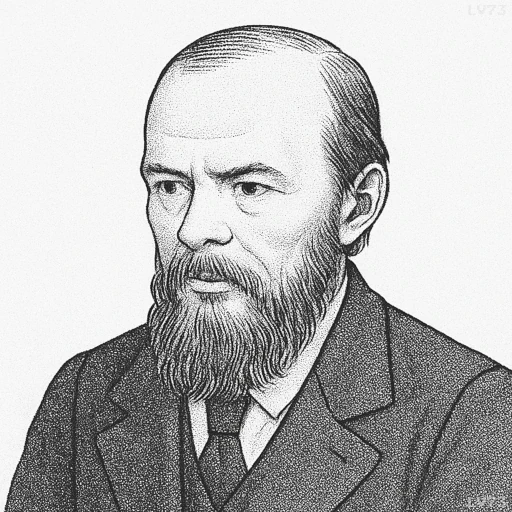“It seems, in fact, as though the second half of a man’s life is made up of nothing, but the habits he has accumulated during the first half.”

- November 11, 1821 – February 9, 1881
- Born in the Russian Empire
- Novelist, philosopher
table of contents
Quote
“It seems, in fact, as though the second half of a man’s life is made up of nothing, but the habits he has accumulated during the first half.”
Explanation
Dostoevsky’s quote reflects his understanding of the inevitable influence that early life experiences and habits have on the second half of a person’s life. He suggests that as individuals age, their actions, decisions, and behaviors become increasingly determined by the patterns and habits formed in their youth. These habits, whether they are good or bad, shape how a person interacts with the world, responds to challenges, and makes decisions as they grow older. The “second half” of life, in this sense, is not a period of new beginnings or radical transformation, but rather a continuation of what has already been established. This speaks to Dostoevsky’s broader theme of human nature: that the soul is often bound by its past experiences, and it can be difficult to break free from these ingrained patterns.
The idea that a person’s future is largely shaped by their past echoes Dostoevsky’s exploration of the psychology of addiction, redemption, and moral choices. His characters are often trapped by their own actions, desires, and choices. For example, in Crime and Punishment, Raskolnikov’s past habits of intellectual arrogance and moral relativism weigh heavily on him as he tries to confront the consequences of his crime. The quote suggests that the struggle for change, growth, or spiritual awakening becomes more difficult the longer an individual clings to unhealthy patterns, and that the weight of past decisions can prevent true freedom and transformation.
In contemporary life, this quote serves as a reminder of the power of habit in shaping the course of our lives. In a modern context, people often struggle to change established habits, whether in terms of health, relationships, or mental patterns. The second half of life, particularly as people grow older, can feel like a repetition of earlier years if they do not make a conscious effort to reassess their habits and challenge the assumptions and behaviors they have accumulated. On the positive side, it also highlights the importance of early choices and personal development, as forming good habits early on can have lasting positive effects. Whether in personal growth, career success, or spiritual well-being, the habits we cultivate in our youth can provide the foundation for a life that is fulfilling and aligned with our deepest values.
Would you like to share your impressions or related stories about this quote in the comments section?




